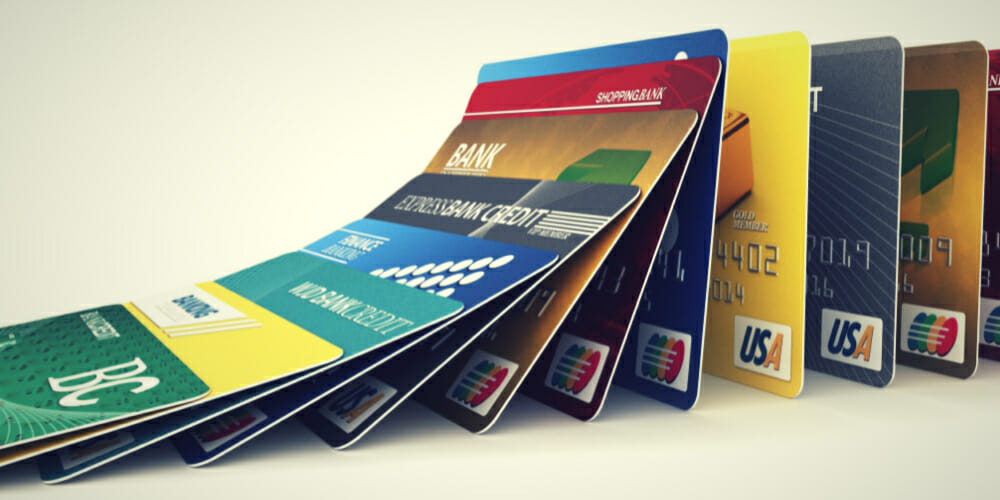In today’s retail environment, credit card processing company is essential, especially for firms that operate through e-commerce platforms. However, many shoppers worry about how long a merchant has after submitting a purchase to charge their credit card. Or what are the chargeback limits of different cards?
According to credit card issuer rules, merchants have no time limit to charge their credit cards. If the transaction is approved, the merchant has to charge its credit card within the time limit of 30 days. The period might range from 24 hours to 3 days, depending on the bank. Some banks demand to charge credit cards within 30 days.
This article will help you better understand the credit card features and some popular related questions. Let’s begin!
What Is A Credit Card?
A credit card is a type of financial product that gives the holder a predetermined credit limit to purchase items or withdraw cash. Banks and other financial institutions issue credit cards, and they typically come with a set of terms and conditions that cardholders must agree to.
For example, most credit cards have an annual percentage rate (APR), and the interest rate cardholders will be charged on any outstanding balances. Credit cards also have credit limits, the maximum amount of money borrowed at any time.
For using a credit card, cardholders must first apply for and are approved for credit by the issuing bank or financial institution. There are many different types of credit cards available. Each has its own set of features and benefits:
- Some credit cards offer rewards like cash back or points that can redeem for travel, merchandise, or gift cards
- Some credit cards offer low-interest rates, which can save you money on finance charges if you carry a balance from month to month.
- Some credit cards offer higher interest rates and fees, designed for people with bad credit.
How Does It Work?
Credit card working is straightforward. You just need to remember a few things, and you can easily use your credit card.
- When you use your credit card, you must have your credit card number, the expiration date, and the security code. These are the three main things that you will need to use your credit card.
- You will also need to know your credit limit. It is the maximum amount of money that you can spend on your credit card. Once you reach this limit, you will no longer be able to use your credit card. You can determine your credit limit by reading through your credit card agreement or contacting your credit card company.
- You must ensure that you pay your credit card bill on time. If you do not, you will be charged interest and late fees.
- You may be required to pay an over-limit fee if you are ever over your credit limit.
- Fourth, it is essential to know that credit cards are not free money. You will still need to pay for the things that you purchase with your credit card.
- If you do not pay off your credit card balance in full each month, you will be charged interest on the remaining balance.
- It is vital to use your credit card wisely. Remember only to charge what you can afford and pay back your credit card bill on time.
If you do these things, you can use your credit card without any problems.
Payment authorization is the process of authorizing a payment to be made from one account to another. It can be done by various means, such as using a credit card, debit card, or bank account. Payment authorization typically requires that the person initiating the payment has the funds available in their account to cover the payment amount.
It is an integral part of many financial transactions. By authorizing a payment, the buyer is essentially giving the seller permission to withdraw the funds from their account. There are a few different ways to handle payment authorization.
- In some cases, the payment will be authorized at the time of purchase. It means the bank will immediately transfer the funds from the buyer’s account to the seller’s account.
- In other cases, payment may be authorized but not processed until a later date. It can happen if the payment is made for something that the purchase will be shipped later.
Does It Expire?
Yes, it actually happens. Payment authorization can expire for a number of reasons. The most common reason is that the payment was never completed. If payment is not completed within a certain time frame, the payment authorization will expire. Additionally, payment authorization can also be set to expire on a specific date.
An authorization hold is a temporary hold placed on your credit card for the estimated amount of a pending transaction. This hold allows a merchant to verify that the customer has sufficient funds to cover the purchase. Once the transaction is processed, the authorization hold will be removed.
The authorization hold will automatically be removed if the transaction does not go through. However, it may take a few days for the authorization hold to be completely lifted from your account.
When Should This Be Used?
Once the authorization hold is in place, the merchant can then process the transaction. There are a few situations when an authorization hold may be used. For example, if you are booking a hotel room, the hotel may place an authorization hold on your credit card to ensure that you have the funds to pay for your stay.
Or, if you are renting a car, the rental company may place an authorization hold on your credit card to make sure you can pay for any damages that occur during the rental period. In most cases, authorization holds are temporary and will eventually drop off your credit card statement.
However, it’s essential to know that some authorization holds may remain on your account for a few days or weeks. If you have any questions about an authorization hold, contact the merchant or your credit card issuer for more information.
Length Of Permitted Time To Hold
Depending on the card issuer, an authorization hold may remain on the account for up to 30 days. Some businesses may hold for a more extended period if the purchase is for a significant amount or if the customer has a history of making late payments.
If you have been charged an authorization hold, you may be able to have the funds released sooner by contacting the business and requesting a refund. In some cases, the card issuer may also be able to help you get your money back.
If you’ve ever had a credit card authorization hold, you know they can be annoying. Here are some common problems people have with authorization holds and how to avoid them. If you’ve ever had a problem with an authorization hold, it’s probably one of these:
- The first is that authorization holds can be higher than the actual purchase amount. This is because merchants will often authorize a higher amount to account for tips or other fees that may add to the final bill. So if your authorization hold is higher than your actual purchase, don’t worry; it should adjust once the transaction is processed.
- The second problem people have with authorization holds is that they can fall off your credit card statement before the transaction is processed. It can be confusing because it looks like you’ve been charged for something you didn’t buy. But don’t worry; the authorization hold will fall off your statement once the transaction is processed.
If you’re ever unsure about an authorization hold on your credit card statement, just call your bank or credit card company. They’ll be able to tell you if the hold is still there and if it’s for an actual purchase. Most authorization holds are harmless and will fall off your statement in a few days. But if you’re ever unsure, just give your bank or credit card company a call to check.
What Is A Chargeback?
Chargebacks happen when a customer disputes a charge with their credit card issuer. The issuer then refunds the customer’s money and requests that the merchant refund the money.
It can harm credit because it can result in the merchant being charged higher fees and negatively impact the merchant’s reputation. Charges can also result in the merchant being placed on a denylist, making it difficult to get future credit. Therefore, merchants must avoid chargebacks whenever possible.
Chargebacks Time Limit
There is a time limit for filing chargebacks on your credit card. It is usually around 120 days from the date of the transaction. Chargebacks are filed for any reason, but most commonly, they are filed for unauthorized transactions, fraudulent charges, or disputed charges.
If you think you have grounds for a chargeback, you should contact your credit card issuer as soon as possible to begin the process.
Cardholder Time Limit
The cardholder has a time limit of 120 days to file a chargeback limit.
Banks and Merchants’ Time Limit
The time limits for them vary from one cardholder brand to another; some allow merchants to respond within 20 days to 45 days.
Factors Determining a Chargeback Time Limit
Most legal cardholder complaints will include fraud, such as a stolen card or information theft. With the possibility of changing start days in mind, most chargeback cause codes allow 90-120 days after the transaction date to initiate a claim.
However, chargebacks can also be triggered by processing problems on the merchant’s end. These often have a shorter time window to register a chargeback since they are more liable to be intercepted by the bank or processor before reaching the customer.
Mastercard Chargeback Time Limits
The Mastercard chargeback process is designed to protect cardholders from fraud and give them a way to get their money back if they’ve been misled or taken advantage of. There are time limits in place for filing a chargeback, and it’s important to be aware of them so you can take action as soon as possible.
Issuer/CardHolder
In most cases, Mastercard holders have 120 calendar days from the Central Site Business Date (CSBD) to request a chargeback. Particular sorts of Mastercard disputes are expected to be resolved in as little as 45 days. In other circumstances, clients may be given more than a year to submit.
Acquirers/Merchants
In general, merchants and acquirers have 45 days to react to each stage of a Mastercard chargeback. A request for information about a dispute is a crucial exception. Merchants have only 18 days to reply.
Visa Chargeback Time Limits
There are time limits for Visa chargebacks that Issuers and Acquirers must follow. If a chargeback is filed after the deadline, it will be rejected.
Issuer/CardHolder
In most circumstances, Visa cardholders can only initiate a chargeback within 120 days of the original transaction or delivery date. Visa, like Mastercard, requires shorter periods for some disputes. For example, claims must be made within 75 days following the transaction in some situations.
Acquirers/Merchants
Acquirers and merchants, for their part, must reply within 30 days of Day One for each round. The only exception is the arbitration term, which has the shortest deadline. A side must submit a disagreement to arbitration within 10 days after filing it.
Amex Chargeback Time Limits
If you’re a victim of fraud or if you dispute a charge on your American Express card, you can file a chargeback. This allows you to reverse the charges and get your money back. American Express has strict time limits for filing chargebacks, so it’s important to know when to file one.
Issuer/CardHolder
Previously, Amex cardholders had no time restriction for challenging a transaction. Since then, the business has enforced a 120-day deadline for filing all chargebacks. The commencement date may differ in rare cases, but they are the only exceptions. On the other hand, cardholders are restricted to two challenges per transaction.
Acquirers/Merchants
When a cardholder contacts American Express with a dispute, the bank side of the corporation will either submit the chargeback or send an inquiry to the retailer. After then, they have 20 days to reply to the query, either admitting the disagreement or proving why the chargeback is incorrect.
Most of the time, Amex will escalate the matter to a chargeback. The corporation does not have the same sophisticated dispute resolution procedure for merchants. The merchant has no recourse if the bank rules that the chargeback is valid because the two are inseparable.
Discover Chargeback Time Limits
Chargebacks can be filed up to 120 days after the original transaction took place, but there are a few exceptions to this rule. If fraudulent activity is suspected, the cardholder has just 90 days to file.
Issuer/CardHolder
While Discover is still primarily a bank and card network, it collaborates with other chosen issuers. As a result, the company’s chargeback process is comparable to that of Visa and Mastercard. Cardholders can usually submit a dispute with Discover up to 120 days after the transaction.
Acquirers/Merchants
The retailer has 20 days to respond to the initial Discover answers. On the other hand, individual banks and processors may be more stringent with deadlines. Merchants must appeal the decision representation within 30 calendar days.
The seller has 30 days to present new documentation if a second chargeback occurs. Merchants have 15 calendar days to seek that Discover adjudicates the matter.
Reason Codes & Recurring Payments
Every chargeback is accompanied by a reason code that defines the cause of the dispute. These factors may influence the time restrictions for resolving disputes.
Some reason codes, for example, give cardholders a year to file. Others require banks to wait a specified amount before issuing a chargeback. The 120-day timeframe may still apply for faulty or “Not as Described” cause codes, although “Day One” will vary based on the circumstances.
It is significant for businesses that use an installment billing (subscription) business model.
In some instances, the business provides continuing products or services, yet the customer’s card may only be charged once a year. Not only can cardholders request a chargeback months after the transaction date, but they may also be able to dispute back payments for several months or even years during the subscription’s duration.
FAQs
Are Chargebacks Bad for Credit?
Luckily chargebacks will not have a negative influence on your credit score. However, chargebacks are not something to be taken lightly. While they may not directly impact your credit score, they can still indirectly impact it in several ways.
- First, if you have a lot of chargebacks, it could indicate that you’re not running your business well. It could lead to creditors being reluctant to extend your credit in the future.
- Second, chargebacks can result in fees from your credit card processor or bank. If you don’t pay these fees, your creditors could report the unpaid debt to the credit agencies, damaging your credit score.
Do Banks Investigate Chargebacks?
Yes, banks investigate chargebacks for their customer satisfaction. In some cases, the investigation usually happens when the amount of money involved is significant or when there are multiple chargebacks from the same customer. In these cases, banks will often hire outside firms to investigate the chargebacks and determine if the cardholder is actually at fault.
In many cases, banks don’t look into the matter too deeply. It is because it’s easier and cheaper for banks to process chargebacks than to investigate them. Overall, it’s difficult to say how often banks investigate chargebacks. It depends on the individual case and the bank’s policies.
How Often Do Consumers Win Chargebacks?
The answer depends. Chargebacks are decided on a case-by-case basis, and there is no hard and fast rule about how often consumers win them. The average merchant reported a chargeback victory percentage of 32%, according to the 2021 Chargeback Field Report. It implies that when merchants choose to fight back, they win around one-third of the time.
The simple win rate average is 22% (56 percent average of disputed fraud-related chargebacks multiplied by 40 percent average win rate); however, the 27 percent average is based on a merchant-by-merchant data analysis.
How Long Can a Credit Card Transaction be Pending?
The answer depends on the credit card issuer, but most transactions will become finalized within a few days. The average time limit for it is between 3 to 5 days. However, it can be longer depending upon the different factors. For example, if you make a hotel reservation with your credit card, the hold will normally continue up to 24 hours after check-out.
Conclusion
No matter what type of credit card you choose, it’s important to use it responsibly. The buyers must get all the related information from the card’s brand. And there is no specified time limit for the merchants to charge their cards.
However, you must keep an eye on your transactions and their related pop-ups delivered to you. If you do that, credit cards can be a great way to improve your financial situation. If you have been charged for an item you did not purchase, you should contact your credit card issuer to dispute the charge.





